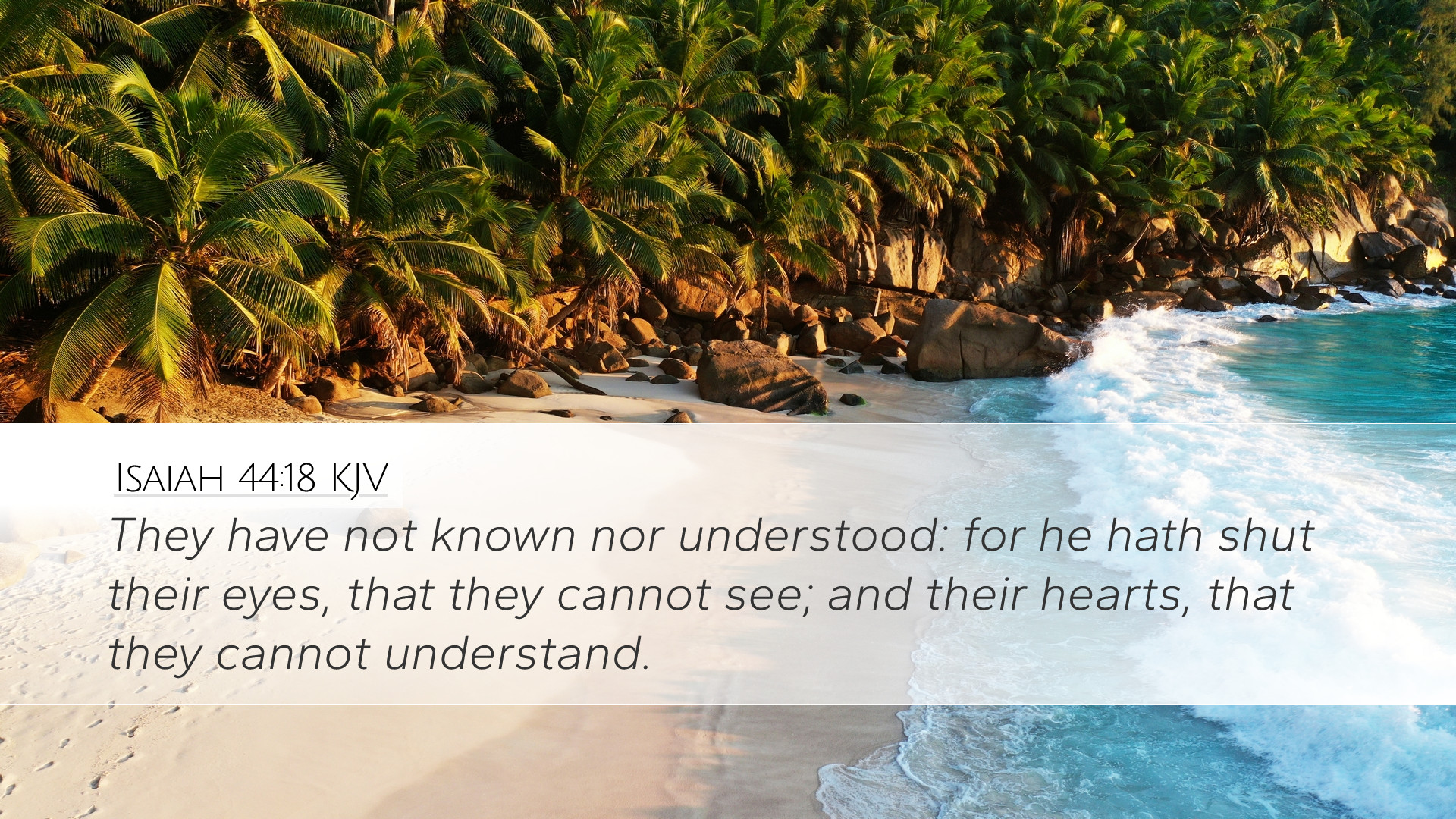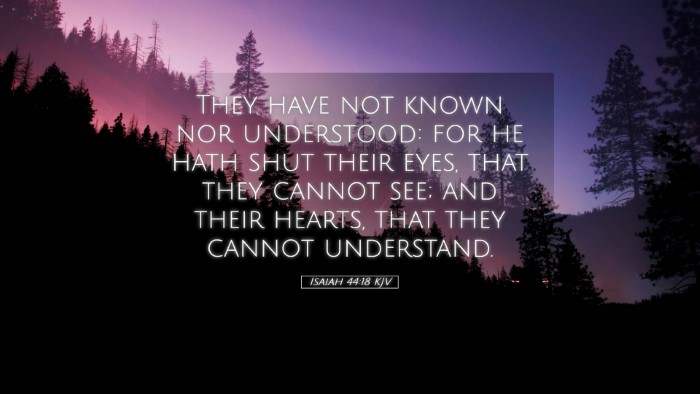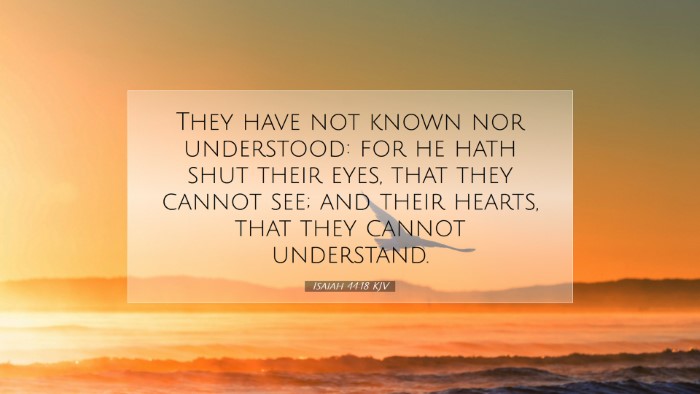Bible Commentary on Isaiah 44:18
Verse: Isaiah 44:18 - "They have not known nor understood: for he hath shut their eyes, that they cannot see; and their hearts, that they cannot understand."
Introduction
The verse from Isaiah 44:18 provides profound insight into spiritual blindness and ignorance regarding God's truth. In this commentary, we delve into the interpretations provided by notable public domain commentators, such as Matthew Henry, Albert Barnes, and Adam Clarke, to grasp the depth of God's message to His people. This analysis is tailored for pastors, students, theologians, and Bible scholars.
Exegesis of Isaiah 44:18
This verse is situated within a larger context where God speaks about the futility of idolatry and the true understanding of His sovereignty. The phrase "They have not known nor understood" emphasizes the willful ignorance caused by a lack of spiritual insight. This condition is not merely a consequence of human limitation, but a result of divine action: "for he hath shut their eyes."
Insights from Matthew Henry
Henry highlights the theme of spiritual blindness as a divine judgment. He notes that the "shutting of the eyes" represents God's restraint on understanding, emphasizing that this is a common condition among the people who persist in idol worship. He argues that when individuals pursue falsehoods, God may withdraw His enlightening influence, allowing them to remain in their delusions.
- Spiritual Blindness: The state of unawareness regarding God and His truths.
- Judgment for Idolatry: The link between worshiping idols and a lack of understanding.
- Divine Sovereignty: God's power over the understanding and hearts of men.
Insights from Albert Barnes
Barnes elaborates further on the theological implications of this verse, underscoring that the "shutting of their eyes" suggests God's control over human perception. He elaborates that it is not only a punitive measure but also an indication of the natural inclination of the heart away from God. Barnes indicates that the lack of comprehension stems from both divine and human agency, highlighting the tension between God’s sovereignty and human responsibility.
- Human Agency: Emphasizing the choice of individuals to reject God.
- God's Sovereign Actions: How God can intervene in human understanding.
- The Role of Idolatry: The destructive influence of turning to false gods.
Insights from Adam Clarke
Clarke provides an excellent historical context for this verse. He describes the theological background of Israel's relationship with God amidst their idolatrous practices. Clarke points out that the phrase "he hath shut their eyes" serves as a warning — a reminder that spiritual discernment is a gift from God. The blindness of the people is a reflection of their own spiritual conditions and the consequences of their choices.
- Historical Context: The state of Israel surrounded by idolatry.
- God's Gifts: Highlighting understanding and insight as divine gifts.
- Consequences of Sin: The direct correlation between sin and spiritual blindness.
Theological Implications
This verse profoundly challenges both contemporary and ancient audiences to reflect on their understanding of God and the dangers of turning to falsehoods. The refusal to see and comprehend God's truth leads to spiritual demise. Furthermore, it implies accountability in seeking true understanding and relationship with God, urging believers to remain vigilant about their spiritual states.
Practical Applications
- Self-examination: Believers should regularly assess their spiritual health, ensuring they are not blinded by distractions or false teachings.
- Teaching and Preaching: Pastors are encouraged to proclaim the truth of Scripture boldly, that hearers may come to know and understand God's ways.
- Prayer for Insight: Seek divine enlightenment, asking God to open eyes and hearts to His will and truth.
Conclusion
Isaiah 44:18 serves as a poignant reminder of the consequences of turning away from God. Through the insights of Matthew Henry, Albert Barnes, and Adam Clarke, readers are edified on the significance of recognizing spiritual blindness and the need to earnestly pursue understanding through a relationship with God. The verse beckons all, especially those in spiritual leadership and study, to guide others toward the light of awareness and the profound truths of the divine revelation.


